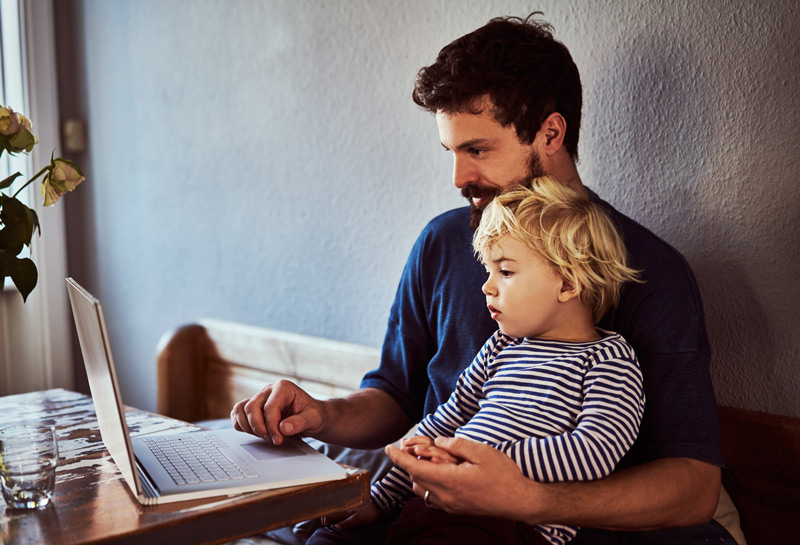
Periods of uncertainty, like the the COVID-19 pandemic, can be scary situations for parents and kids. In addition to establishing whole new daily routines to follow while schools are closed and practicing healthy habits like social distancing, there’s concern about the virus itself.
It’s best to answer children’s questions with honesty and age-appropriate information. Children will find it much easier to adapt to their new reality if they feel informed. These trusted sources are great tools for keeping up to date on the latest news and for sharing relevant information with your kids when they ask.
PBS
https://www.pbs.org/newshour/health/10-tips-for-talking-about-covid-19-with-your-kids
PBS knows kids, and their children’s education resources at PBS Kids provide a wealth of age-appropriate learning material, including updated content for remote learning while schools are closed. In addition, their news program PBS NewsHour put together a list of 10 tips to help parents talk to kids about COVID-19.
Excerpt:
"Give them power — and responsibility. Kids do better when they have power; it’s one of their emotional needs. And this is a great time to give it to them. Kids can help their neighbors and loved ones stay safe and healthy if they frequently wash their hands with soap and water for 20 seconds, or as long as it takes to sing “Happy Birthday” twice. You might tell them that hand-washing is like kryptonite to the coronavirus, and hand-sanitizer is a perfectly good stand-in when they can’t find soap and water."
UNICEF
https://www.unicef.org/coronavirus/covid-19
The UN, as a source for global events and information, is a helpful place to start when it comes to how COVID-19 is affecting people worldwide. Specifically, the UN Children’s Fund (UNICEF) has a webpage dedicated to everything COVID-19-related. The page includes methods for protecting your family, talking to kids about the virus (for both parents and teachers), and ways people around the world are staying positive amid the crisis.
Excerpt:
"Check if they are experiencing or spreading stigma. The outbreak of coronavirus has brought with it numerous reports of racial discrimination around the world, so it’s important to check that your children are neither experiencing nor contributing to bullying. Explain that coronavirus has nothing to do with what someone looks like, where they are from or what language they speak."
CDC
Archive
The Centers for Disease Control and Prevention, were a primary source for continued, up-to-date information about the spread of COVID-19, and had many resources for anyone who interacted with children. (These pages have been pulled as of January 2025 but are available via the archive link above).
Excerpt:
"Facts about COVID-19 for discussions with children: COVID-19 is the short name for “coronavirus disease 2019.” It is a new virus. Doctors and scientists are still learning about it. Recently, this virus has made a lot of people sick. Scientists and doctors think that most people will be ok, especially kids, but some people might get pretty sick. Doctors and health experts are working hard to help people stay healthy."
Psychology Today
https://www.psychologytoday.com/us/blog/hope-resilience/202003/how-talk-your-kids-about-covid-19
The psychology periodical Psychology Today approaches discussion suggestions from the standpoint of mental wellbeing. The steps outlined in the article focus on helping children feel safe, secure, and comfortable asking questions.
Excerpt:
"Instill hope into the conversation by embracing what has helped your family find strength, meaning, and comfort in other difficult situations. At the same time, resist the temptation to minimize possible challenges your family and community might be facing. The goal is to strike a tone that is hopeful and honest."
BrainPOP
https://www.brainpop.com/health/diseasesinjuriesandconditions/coronavirus/
The whole concept behind BrainPOP is using creative ways of explaining difficult concepts to young learners. The folks at BrainPOP have assembled a whole coronavirus (and infectious disease) curriculum for teaching kids the facts with a vocabulary list, related reading resources, and animated videos.
Excerpt:
"It wasn’t until the invention of powerful electron microscopes in 1931 that scientists were able to get an up-close look at an actual virus. Instead of using visible light, these microscopes illuminate objects using beams of electrons—negatively charged particles that make up atoms. The devices can magnify objects so that they appear millions of times larger! Viruses were finally revealed in all their glory. Those first images were like a glimpse into an alien world. Before then, scientists had no idea how viruses invade cells—and that knowledge has proven crucial to stopping their spread."
March 25, 2020